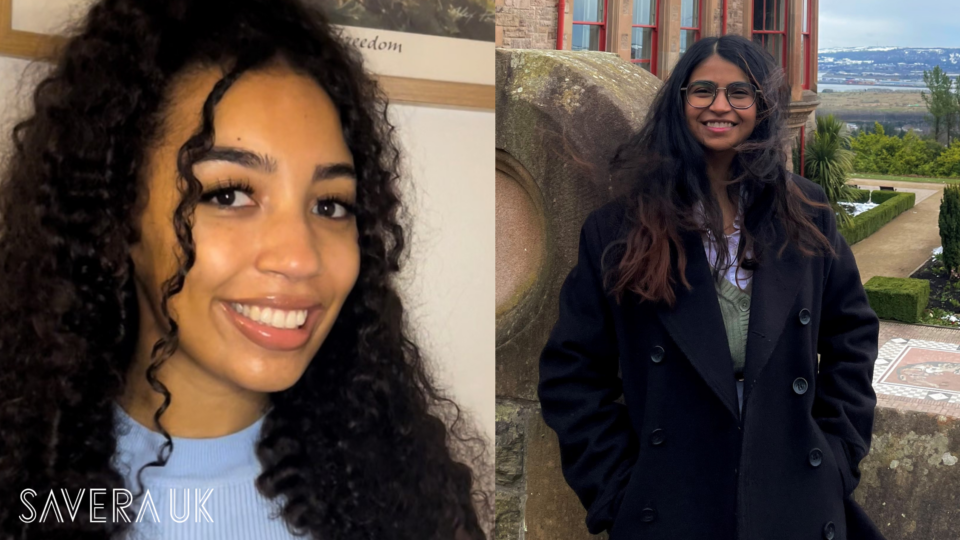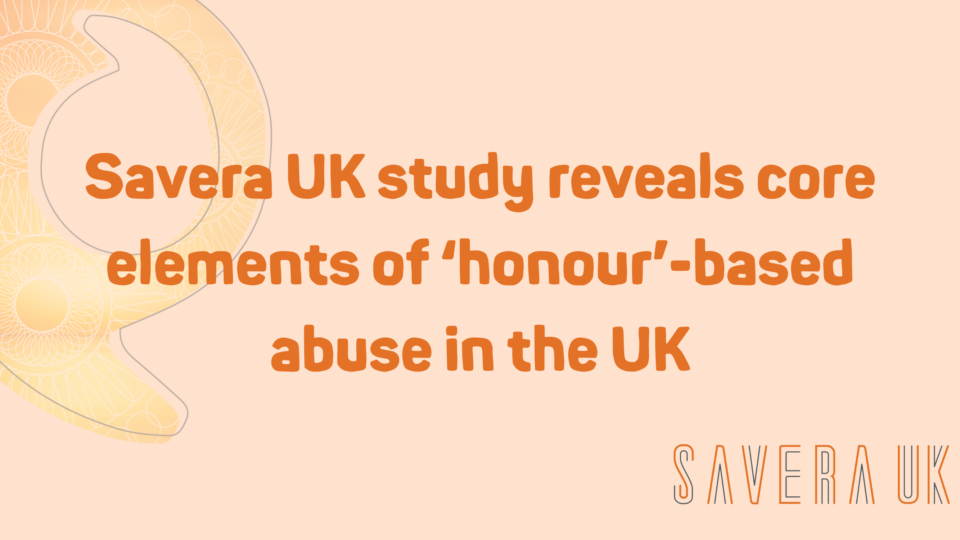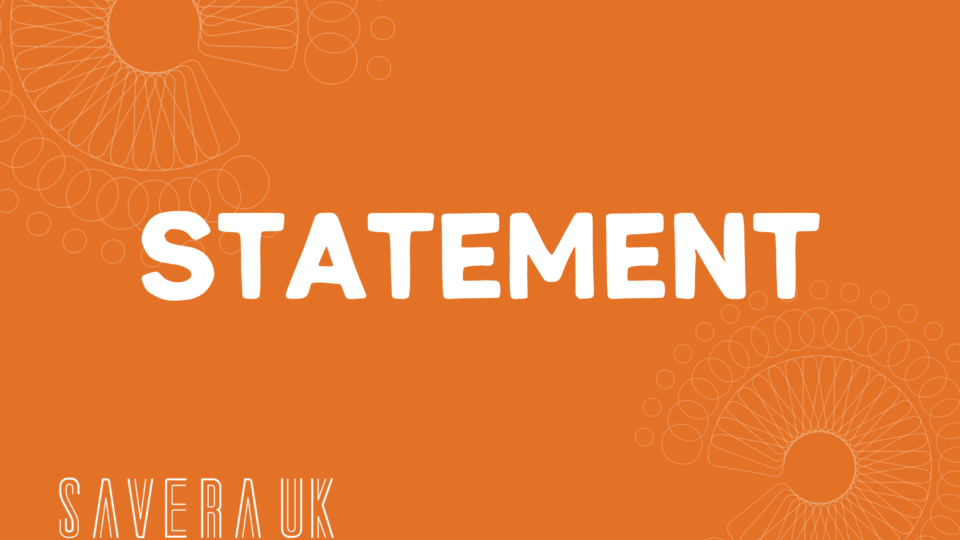This Volunteers Week, Savera UK is highlighting the generosity of those who give up their free time to join the organisation in working towards its mission of ending ‘honour’-based abuse (HBA) and harmful practices.
We spoke to Savera UK volunteers Macy and Krinal to discuss their experience at the charity and what they enjoy about volunteering.
Hi! Please tell us a bit about you.
Hi, I am Krinal! I am a MSc Investigative & Forensic Psychology student at University of Liverpool. I enjoy watching true crime documentaries and shows and it’s almost a year since I have moved to Liverpool from India.
Hi, I’m Macy, I have a first class degree in Forensic Psychology which I did at Leeds University. I also have experience in research, collecting data and report writing and aspire for a career in mental health. I am currently working in the food & hospitality industry.
Why did you choose to volunteer for Savera UK?
Krinal: As someone who comes from a culture and country that has witnessed a lot of cases of ‘honour’-based abuse (HBA), the work that Savera UK does resonated with me. It does such good work to help those who are facing HBA, which most people are unaware of or do not know how to help. I wanted to contribute and help empower those at risk in the safe space they are provided at Savera UK.
Macy: I chose to volunteer at Savera UK because I am passionate about supporting human rights, particularly women’s rights. As Savera UK safeguards and advocates on behalf of many women of colour I thought this would be very fitting for me. I also wanted to get some experience working in a setting that helps people with their mental health.
How long have you been a volunteer with the organisation, and how often do you volunteer?
Krinal: I have been volunteering for two to three weeks at Savera UK now and I volunteer once a week three to four hours.
Macy: I have been a volunteer for just over a month and I volunteer for a couple of hours a week, usually on a Friday.
What does your role involve?
Krinal: My role mainly involves supporting clients with recreational activities or learning activities that they are interested in to help support their interests. It also involves supervised training for interventions with survivors of HBA.
Macy: I assist in running client led sessions. We do fun activities such as go to the park, go to the museum, dance classes and watching films. I also help keep the client spaces tidy and bring the clients refreshments.
What has been the best part about volunteering with Savera UK so far?
Krinal: I think it is seeing clients be so happy and feeling a sense of happiness myself. Plus, Savera UK staff are probably the best colleagues I could have asked for. They are all so supportive and welcoming – you feel like it is a second home.
Macy: I feel I have made really positive relationships with some of the clients and I really enjoy the sessions.
What have you learnt since becoming a volunteer for Savera UK?
Krinal: I have a long way to go before I am truly well-versed in helping and intervening with survivors, but I think it is how I am more sensitive and attuned to how to behave and converse with them that does not involve sympathy but just care. I have also learned about supervising the activities.
Macy: I have learned a lot about harmful practices and ‘honour’-based abuse. I have also learned about different cultural practices including food and religious celebrations.
Do you think others should apply to volunteer with Savera UK?
Krinal: Yes. Anyone who is interested in helping end ‘honour’-based abuse or even just helping those at risk receive support should apply to volunteer with Savera UK because their work is meaningful, and it impacts so many women’s lives. It is an enriching experience.
Macy: I definitely think others should apply to volunteer for Savera UK because I feel I am gaining a lot of experience and it is a really rewarding role, especially after a good session with the clients. All the staff are really friendly and it is a great environment to be in.
Thank you Macy and Krinal, we’re so pleased to have you as part of the team! Are you interested in becoming a volunteer at Savera UK? Apply to become a volunteer here.



